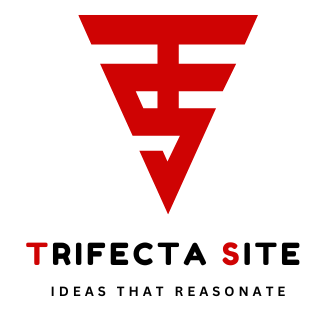Introduction
Spelling be answers a captivating word puzzle game, has become a global phenomenon, engaging millions of players daily. Whether you’re a casual player looking to pass the time or a competitive speller aiming for the top, understanding the intricacies of spelling be answers can significantly enhance your gameplay. This article provides an in-depth exploration of Spelling Bee, covering its origins, rules, strategies, and cultural impact. We’ll also delve into the importance of etymology, the role of pangrams, and how Spelling Bee compares to other popular word puzzles like Wordle and crosswords. By the end of this guide, you’ll have the tools and knowledge to master the game and improve your scores.
Table of Contents
What is spelling be answers?
The Origins of spelling be answers
The term spelling be answers has a fascinating history. The word “bee” traditionally referred to a gathering or communal work activity, such as a quilting bee or a barn-raising bee. The first recorded use of “spelling bee” dates back to the early 19th century, and it has since become synonymous with competitive spelling.
The concept of spelling competitions gained popularity in the United States during the 20th century, culminating in the establishment of the Scripps National Spelling Bee in 1925. This prestigious event has produced legendary spellers like Zaila Avant-garde, who won the competition in 2021 and became a household name.
The New York Times spelling be answers
In recent years, the New York Times Spelling Bee has emerged as a beloved daily word puzzle. The game challenges players to create as many words as possible from a set of seven letters, with one central letter that must be included in every word. The puzzle’s simplicity, combined with its intellectual challenge, has made it a favorite among word enthusiasts.
How to Play Spelling Bee Answers
Basic Rules
- Letter Set: You are given seven letters, arranged in a honeycomb shape. One of these letters is designated as the central letter and must be included in every word you form.
- Word Length: Words must be at least four letters long. Shorter words are not accepted.
- Scoring: Points are awarded based on word length. Longer words earn more points, and bonus points are given for pangrams—words that use all seven letters.
Advanced Strategies for Finding Spelling Bee Answers
- Letter Frequencies: Understanding the frequency of letters in the English language can help you identify potential words more quickly. For example, vowels like E, A, and I are more common and often appear in many words.
- Etymology: Knowledge of word origins can be a game-changer. Many English words have roots in Latin, Greek, and other languages, which can provide clues to their spelling and meaning.
- Puzzle-Solving Techniques: Breaking down words into prefixes, suffixes, and root words can help you uncover hidden gems. For example, if you see the letters “UN” and “ABLE,” you can quickly form the word “UNABLE.”
The Importance of Etymology in spelling be answers
Understanding Word Origins OF spelling be answers
Etymology, the study of word origins, is a powerful tool for mastering Spelling Bee answers. Many English words derive from Latin, Greek, French, and other languages, and understanding these roots can help you decode unfamiliar terms.
Examples of Etymology in Action
- Latin Roots: Words like “aquarium” (from Latin “aqua,” meaning water) and “magnify” (from Latin “magnus,” meaning great) are easier to spell when you recognize their roots.
- Greek Roots: Words like “photograph” (from Greek “photos,” meaning light, and “graph,” meaning write) and “biology” (from Greek “bios,” meaning life, and “logos,” meaning study) also benefit from etymological insights.
- French Influence: Words like “ballet” and “champagne” have French origins, which can help you remember their unique spellings.
By familiarizing yourself with common prefixes (e.g., “un-,” “re-,” “pre-“) and suffixes (e.g., “-ing,” “-tion,” “-able”), you can expand your vocabulary and improve your Spelling Bee answers.
The Role of Pangrams in Spelling Bee Answers
What is a Pangram?
A pangram is a word that uses all seven letters provided in the Spelling Bee puzzle. These words are highly valuable because they often yield higher points and can significantly boost your score.
Examples of Pangrams
- “Elephant”: Uses all letters E, L, P, H, A, N, T.
- “Giraffe”: Uses all letters G, I, R, A, F, E.
- “Champion”: Uses all letters C, H, A, M, P, I, O, N.
Finding a pangram can be challenging, but it’s a rewarding experience that often requires creative thinking and a deep understanding of word structures.
The Cultural Impact of Spelling Bee
Competitive spelling be answers
The Scripps National Spelling Bee is one of the most prestigious spelling competitions in the world. It attracts top spellers from across the United States and beyond, showcasing the incredible talent and dedication of young participants. This highly competitive business of spelling demands rigorous preparation and exceptional linguistic skills. Winners like Zaila Avant-garde have become cultural icons, inspiring a new generation of spellers.
Social Media and spelling be answers
Social media platforms like Instagram have become hubs for Spelling Bee enthusiasts. Players share their daily scores, discuss strategies, and celebrate their achievements. The New York Times Spelling Bee, in particular, has a dedicated following, with hashtags like #SpellingBee and #NYTSpellingBee trending regularly.

Comparing spelling be answers to Other Word Puzzles
Spelling Bee vs. Crossword
While both puzzles challenge your vocabulary, they offer different experiences. Spelling Bee focuses on creating words from a set of letters, whereas crosswords require filling in a grid based on clues. Crosswords often test your knowledge of trivia and wordplay, while Spelling Bee emphasizes word formation and spelling accuracy.
Spelling Bee vs. Wordle
Wordle, another popular word puzzle, involves guessing a five-letter word within six attempts. Both games test your vocabulary, but Wordle is more about deduction and process of elimination, while Spelling Bee rewards creativity and breadth of vocabulary.
Conclusion
Mastering Spelling Bee answers requires a combination of vocabulary knowledge, etymological insights, and strategic thinking. Whether you’re playing for fun or aiming to compete in events like the Scripps National Spelling Bee, understanding the nuances of the game can significantly enhance your performance. With the right strategies and a passion for words, you can become a Spelling Bee champion in no time.
FAQs About Spelling Be Answers
1. What is spelling be answers, and why should spelling be a priority?
Spelling refers to the correct arrangement of letters to form words. When it comes to why spelling should be a priority, the spelling be answers are clear: it ensures effective communication, enhances professionalism, and avoids misunderstandings in both written and digital contexts.
2. How can spelling be improved effectively?
If you’re wondering how spelling can be improved, the spelling be answers include:
- Practicing regularly through reading and writing.
- Learning common spelling rules and patterns.
- Using tools like spell-checkers or spelling apps.
- Engaging in activities like spelling bees or word games.
3. What are the most common mistakes that spelling be aware of?
When it comes to common spelling mistakes, the spelling be answers highlight errors such as:
- Confusing “their,” “there,” and “they’re.”
- Mixing up “your” and “you’re.”
- Misspelling words like “accommodation,” “definitely,” and “separate.”
4. How can spelling be checked accurately?
For those asking how spelling can be checked, the spelling be answers suggest:
- Using built-in spell-checkers in word processors like Microsoft Word or Google Docs.
- Relying on online tools like Grammarly or Hemingway Editor.
- Double-checking with a dictionary for confirmation.
5. Why should spelling be taught early to children?
When it comes to teaching spelling early, the spelling be answers emphasize that it:
- Builds a strong foundation for reading and writing.
- Enhances vocabulary and language skills.
- Boosts confidence in communication.
- Prepares children for academic success.
6. How can spelling be made fun for kids?
If you’re looking for ways to make spelling fun, the spelling be answers include:
- Incorporating games like Scrabble or Boggle.
- Organizing spelling bees or competitions.
- Using interactive spelling apps or flashcards.
- Creating songs or rhymes to remember tricky words.
7. What are the reasons spelling be challenging for some people?
For those wondering why spelling can be challenging, the spelling be answers point to factors like:
- Learning differences like dyslexia.
- Lack of exposure to written language.
- Insufficient practice or understanding of spelling rules.
- Limited confidence in writing abilities.
8. How can spelling be important in professional settings?
When it comes to professional settings, the spelling be answers show that spelling:
- Reflects attention to detail and professionalism.
- Enhances the clarity and credibility of communication.
- Reduces errors in emails, reports, and presentations.
- Builds trust with clients and colleagues.
9. How does spelling be relevant to SEO and online content?
For those curious about spelling’s role in SEO, the spelling be answers explain that:
- Proper spelling improves readability and user experience.
- It helps search engines understand and rank content better.
- Accurate spelling builds trust and credibility with readers.
- Poor spelling can lead to higher bounce rates and lower engagement.
10. What tools can spelling be checked with?
If you’re asking about tools for checking spelling, the spelling be answers include:
- Built-in spell-checkers in word processors.
- Online tools like Grammarly, ProWritingAid, or Hemingway.
- Dictionary apps for quick reference.
- Browser extensions that highlight spelling errors in real-time.





